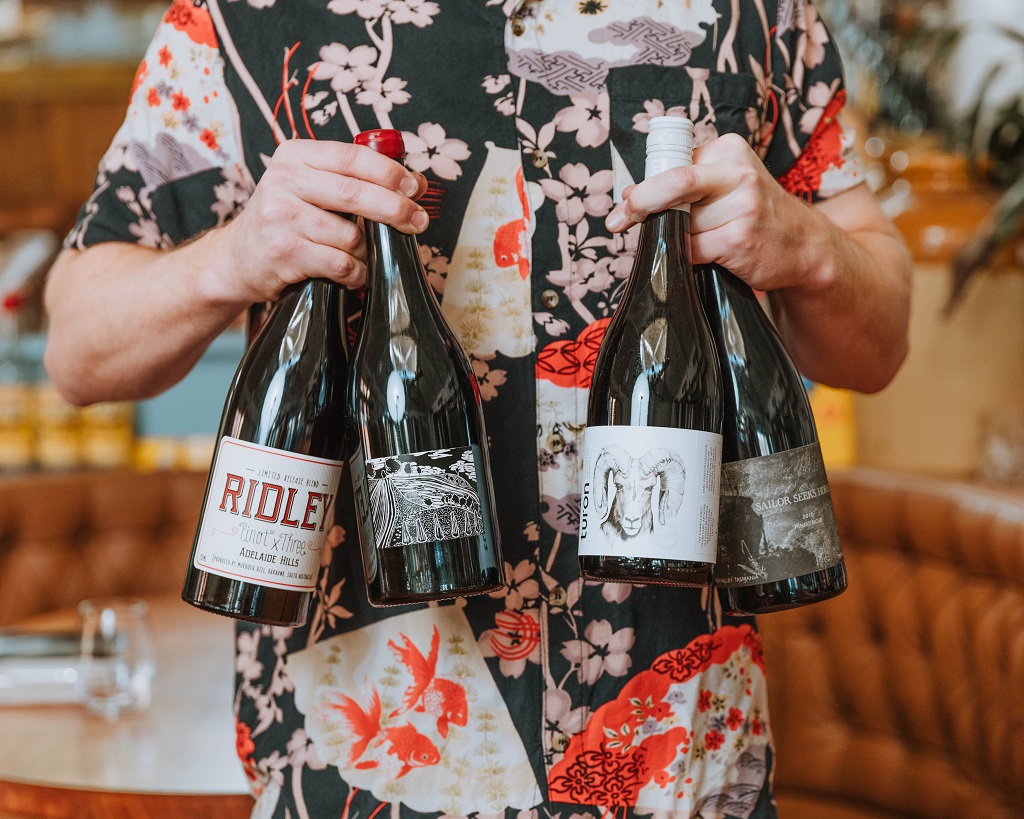2020 has seen wine sales shift in a major way to direct-to-consumer channels, and, with local tourism now picking up, there’s renewed business on the ground at regional cellar doors.
When COVID-19 hit earlier this year, the response was to effectively shut down all non-essential services. Cellar doors were among the casualties, with many wine businesses that rely on visitor traffic hit especially hard.
Journalist Samuel Squire spoke to operators and industry leaders around Australia to find out how businesses and regions have coped through the pandemic and what comes next for sales.
The aftereffects of last summer’s bushfires and wafting smoke notwithstanding, the Australian wine industry has, for the most part, operated with business as usual throughout this year: winegrapes were harvested and vintage 2020 wines have been made.
While social distancing and other ‘COVID-safe’ measures may have been implemented, vineyard and winery workers carried on relatively normally to get the job done as many other industries were forced into business-damaging shutdowns.
But there was one area of wine businesses that has also suffered considerably from pandemic restrictions, although to varying degrees depending on state and region: cellar doors.
With international visitors non-existent since the start of the year and even interstate travel hindered, many cellar doors remained temporarily closed during the pandemic’s initial weeks and months.
But as some states lifted restrictions on people movement and venues opening, and intrastate tourism was encouraged, there have been fresh and very encouraging signs of life for cellar doors.
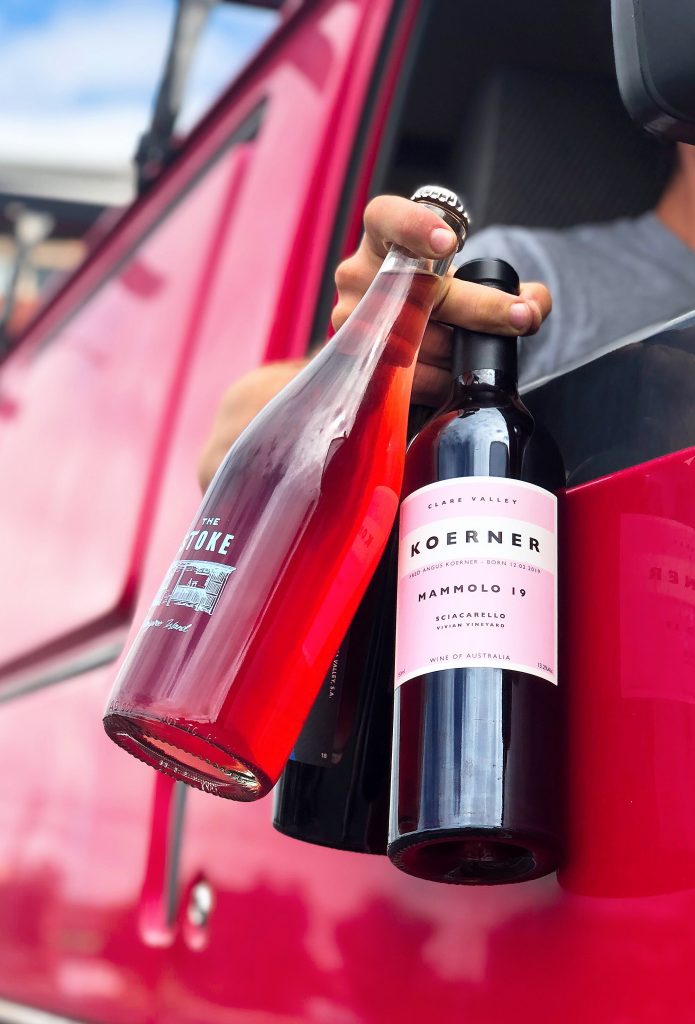
While the absence of coaches carrying visitors from afar is noticeable in wine regions across South Australia, Western Australia, Queensland and elsewhere, any shortfall in business has, seemingly, been filled by local tourist business.
New South Wales wine regions in particular have reported record turnovers, perhaps fuelled by homebound Sydneysiders choosing trips to the Hunter, Orange or Mudgee in the absence of jetting off to overseas destinations.
Recent months have seen on-premise cellar door sales skyrocket, according to industry body New South Wales Wine, although it’s still to be determined whether this will be a longer-term trend.
NSW Wine executive officer Angus Barnes says wine regions have benefitted considerably due to the state’s large population and ongoing border closure between NSW and Queensland limiting northbound tourism.
Barnes said that regional NSW has been on the winning end since “appropriate travel restrictions” were eased, resulting in an uptick in short-term intrastate travel.
“Cellar doors were effectively closed in NSW through April and May 2020, only allowing effective trading from the June long weekend onwards,” he explained.
“Since then, cellar doors in NSW have experienced record turnovers, and many have been effectively booked out, especially on weekends."
Angus Barnes, NSW Wine executive officer
“Large Hunter Valley cellar door sales were reportedly up 40 percent year on year, medium-sized Orange cellar doors were up 270% year on year, and large-sized cellar doors in Mudgee were up 176% year on year.”
Barnes said that going forward for cellar door tourism in NSW and other states, the COVID-19 normal is expected to become the ‘new normal’.
“I think the new normal for cellar doors will remain permanently,” he said, “people will have to continue to pre-book for tastings, which will be paid and seated experiences,” he said.
Increased DtC sales
“Alongside these boosts in on-premise cellar door sales, direct-to-consumer (DtC) has also seen a large increase in sales,” Barnes added.
He also says that DtC performance in 2020 has been “busy when travel was difficult, with existing cellar door customers using DtC to top up their supplies”.
“The challenge [with DtC] has been to sign up new members,” he said. “If you had a good database [prior to the pandemic], then you could take advantage of DtC during COVID-19 lockdowns.”
But while fortunes have favoured certain wine regions north of the Murray, those in Victoria, where stringent lockdown measures have stayed in place for far longer, have not fared as well.
Some wine businesses in Victoria, which has the largest reliance on cellar door sales of any state’s wine industry, have struggled to maintain their viability in the face of the severe restrictions.
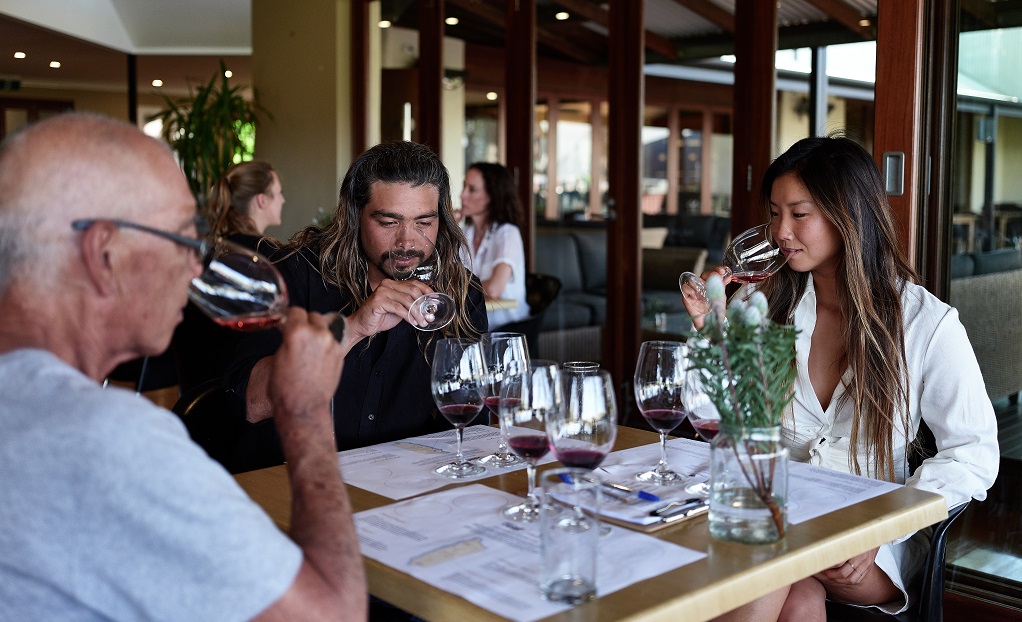
A number of wine producers are reportedly ‘hanging by a thread’, kept alive only thanks to their loyal customer bases and clever, localised marketing strategies.
Leanne De Bortoli, who manages the Yarra Valley cellar door for De Bortoli Wines, says that COVID-19 has inflicted a crippling blow for operations and regional wine tourism in general.
Operating at “well below 90%” than usual has become the new reality, at least in the short term, for many wine sellers, according to De Bortoli.
“Cellar door wine sales are trickling along,” she said, “but I think because, as a company, we have one website for the entire business – which is managed externally – if we’d had an online wine shop specifically for our cellar door, that might have helped things a bit more”.
“While sales for the Yarra Valley cellar door are dramatically lower compared to pre-sales figures, if this cellar door was a standalone business, we’d be in more trouble.”
De Bortoli says the situation has been dire for the company in Victoria and New South Wales, but as some states open up, wine tourism’s pulse is returning.
“Cellar door operations in our Victorian and New South Wales sites were basically decimated,” she said.
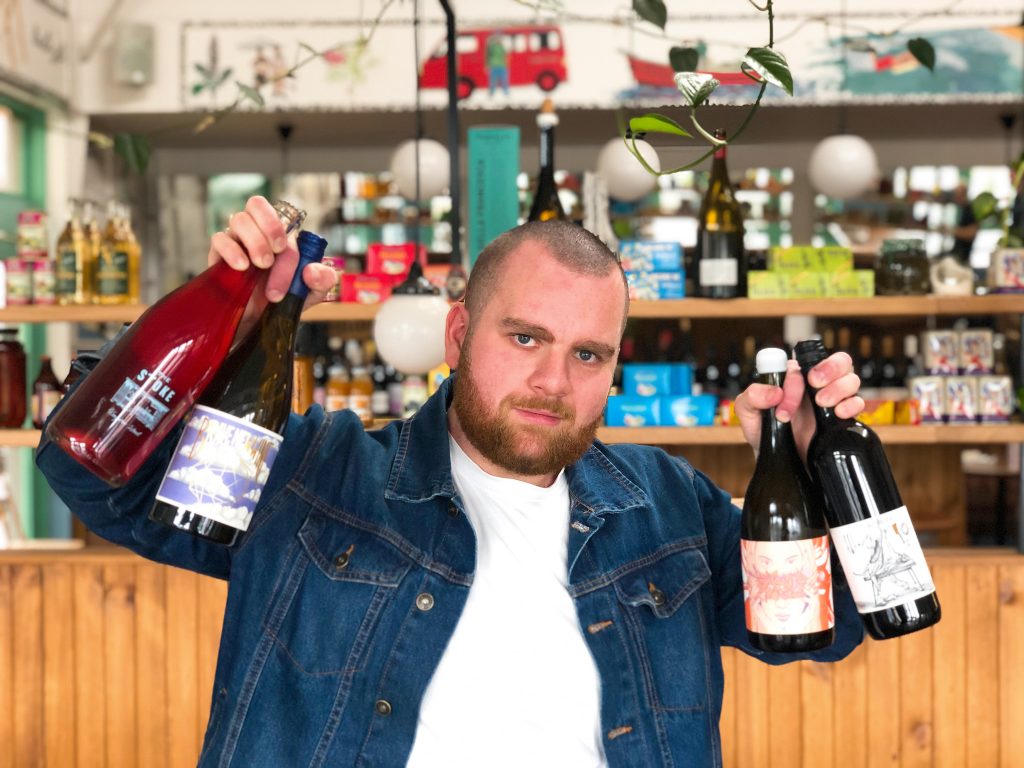
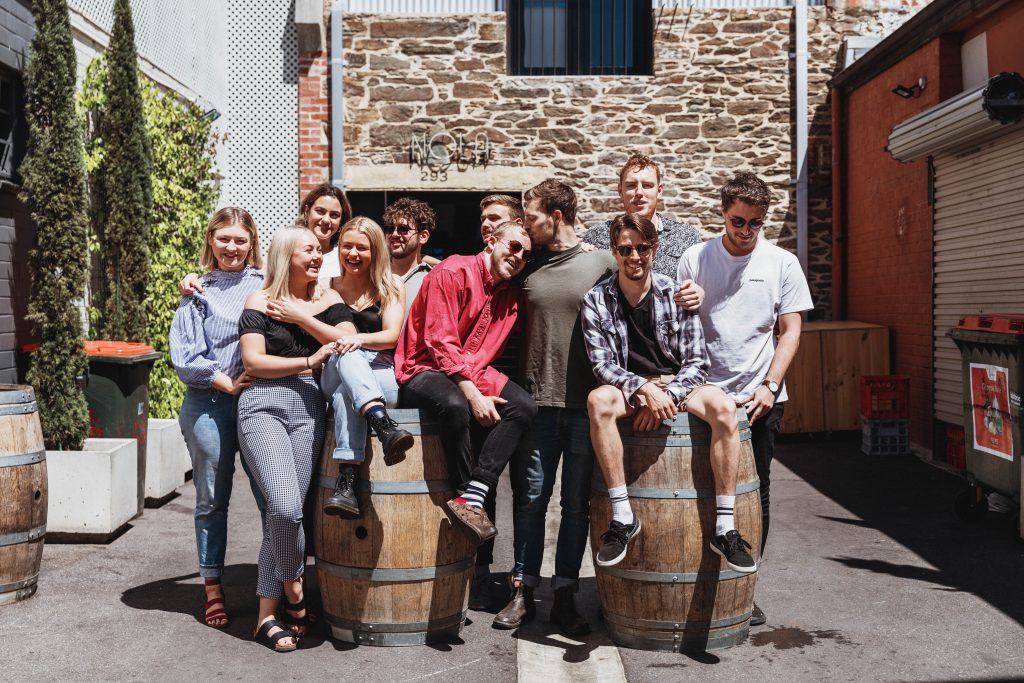
“The Yarra Valley was classed as a metro Melbourne district and our Yarra cellar door was forced to shut up shop under lockdown rules, and was only able to operate as a DtC seller.
Staff redeployed
“The closure meant we could no longer keep our casual and part-time staff, and we have had to redeploy our full-time staff to other areas of the business.”
Leanne De Bortoli, cellar door manage
To cope with the sudden downturn in visitor numbers and revenue, many cellar door operators, including De Bortoli Wines, have been relying on their existing customer databases to keep sales moving.
Although De Bortoli adds that this strategy hasn’t helped with sales of premium wines, which have traditionally been on-premise only purchases.
“For us, it’s been a difficult period,” she said, “we are quite lucky our NSW winery and vineyard are still operating”.
“The difficult part has been the hospitality and on-premise sides of the business. They have been severely reduced.
“A lot more of our premium wines are on-premise, those sales seem to have taken a dip but we are starting to notice them bounce back as lockdowns and COVID restrictions ease in other states.
“With us, it’s about staying engaged with our database of consumers and members. It’s going to be very important over the coming period, when we do start to get back to normal and reopen, to let people know we’re still here.
“Some people have already been trying to book for November, Christmas and weddings. I think people are desperate to come out of lockdown to start life again and get out of the city.”
Another way De Bortoli has had to make some changes to the business model and keep staff employed has been to redeploy staff into other roles across the business.
“We have had to issue our staff with permits so they can get to work. We’re full of hope at the moment that things will at least get better intrastate.”
In Western Australia’s Margaret River wine region, the situation has also been dire, although, of late, the mood has been livening.
‘Exploring their own backyard’
Margaret River Wine Association chief executive officer Amanda Whiteland says the region’s cellar door businesses have started to benefit from lockdown conditions, with international and interstate borders staying shut leaving local tourists with only one option: to explore their own backyard.
“As Western Australians normally travel outside the state more than visitors enter, hard border restrictions have meant Margaret River has seen an increase in winter visitor numbers,” said Whiteland.
“It has been great for us to be able to remind our local Western Australian visitors of the diversity that the Margaret River wine region has to offer.”
She added that while intrastate visitor numbers have climbed, the region wasn’t adequately prepared for the rise, as government restrictions had placed limits on business operations.
“[The pandemic] created some challenges, as the unusually busy winter has put pressure on the region, particularly in regards to labour and accommodation shortages,” she explained.
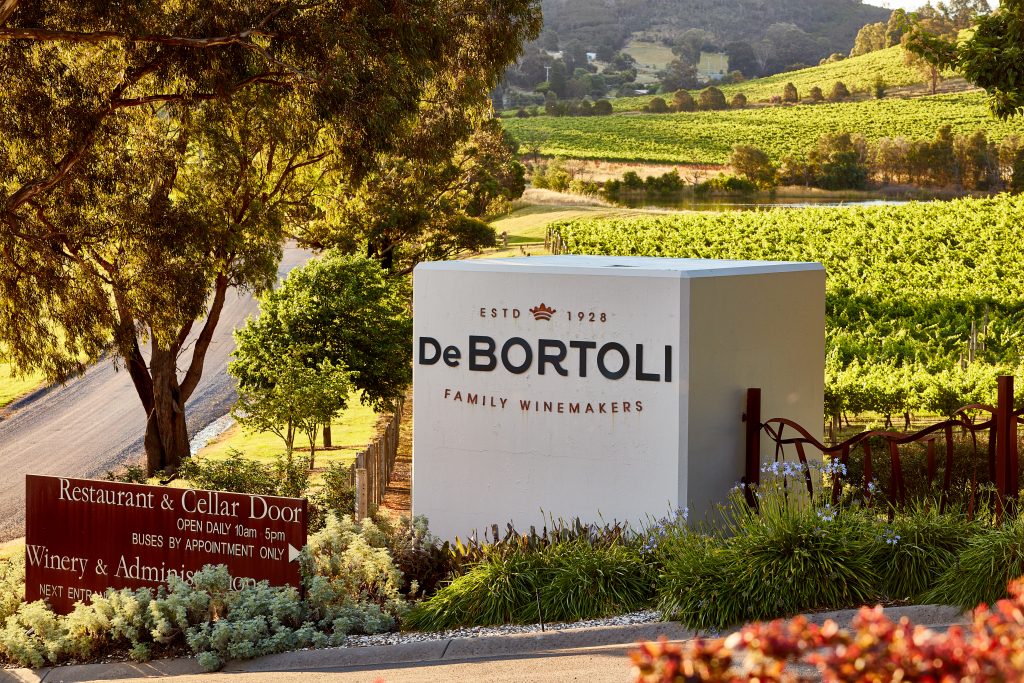
While lockdowns have meant physical visitation to favourite wine regions, and producers, may not have been possible, the ability for consumers to experience their wines has been a constant right through the pandemic.
Mail order and online sales of wine have reportedly been booming. Lockdowns have meant that wine clubs and DtC sales have been pushed to now become integral revenue streams for many businesses.
“Mail order (phone, web, and email) and wine club orders increased significantly during the shutdown,” Whiteland said.
“For some, the increases covered the sales lost due to the cellar door closures. For others, it certainly offset some of the losses from cellar door closures.
“Since reopening, online and direct sales have continued to be very strong, with increases on last year,” Whiteland revealed.
“There is a feeling that many consumers have gained more confidence in ordering their wine online during the various shutdowns and, perhaps, have realised that method of purchasing is worth continuing."
Amanda Whiteland, Margaret River Wine Association chief executive officer
Whiteland added that apart from being up on last year’s numbers, direct-to-consumer sales don’t appear to be slowing down.
However, it’s not just DtC wine sellers with a physical location that have been gaining traction during the COVID-19 period.
Supporting smaller producers
One business, Love and Other Drinks (LOD), formerly known as Big Easy Drinks (BED) is an online only, direct-to-consumer seller of wines, beer and spirits, with a focus on selling smaller producers’ goods.
Love and Other Drinks founder Oliver Brown said his business is run out of a spare room at Adelaide’s iconic hotel, The Stag Public House.
Brown says its founding was “a first response to continue to support their staff and producers”.
“As soon as we heard the news that we [The Stag] had to close down, we had to look into ways to continue to support our producers and staff,” said Brown.
“At the time, the JobKeeper and JobSeeker payment schemes weren’t available, so we needed to find a way to keep people employed and keep our suppliers selling. That’s where Big Easy Drinks came in.
“[It] was started from a place of purity for us, it wasn’t started as a cash grab move to keep the revenue coming in, it was started to be a genuine support network for our suppliers and staff which resonated well with our customers.
“We seemed to be getting a great response to BED initially, we had an average of 70-100 orders a week. It looked like people were really supportive of our strategy to keep going forward.”
Brown echoed that the circumstances of 2020 have accelerated the pace of DtC selling operations.
“I reckon 2020 has increased the overall pace of DtC innovation because it has put everyone up against a wall,” he said.
“The producers which were already thinking of expanding into DtC have doubled down and sped up their innovation, but I think the drive for better DtC had been inevitable anyway.”
